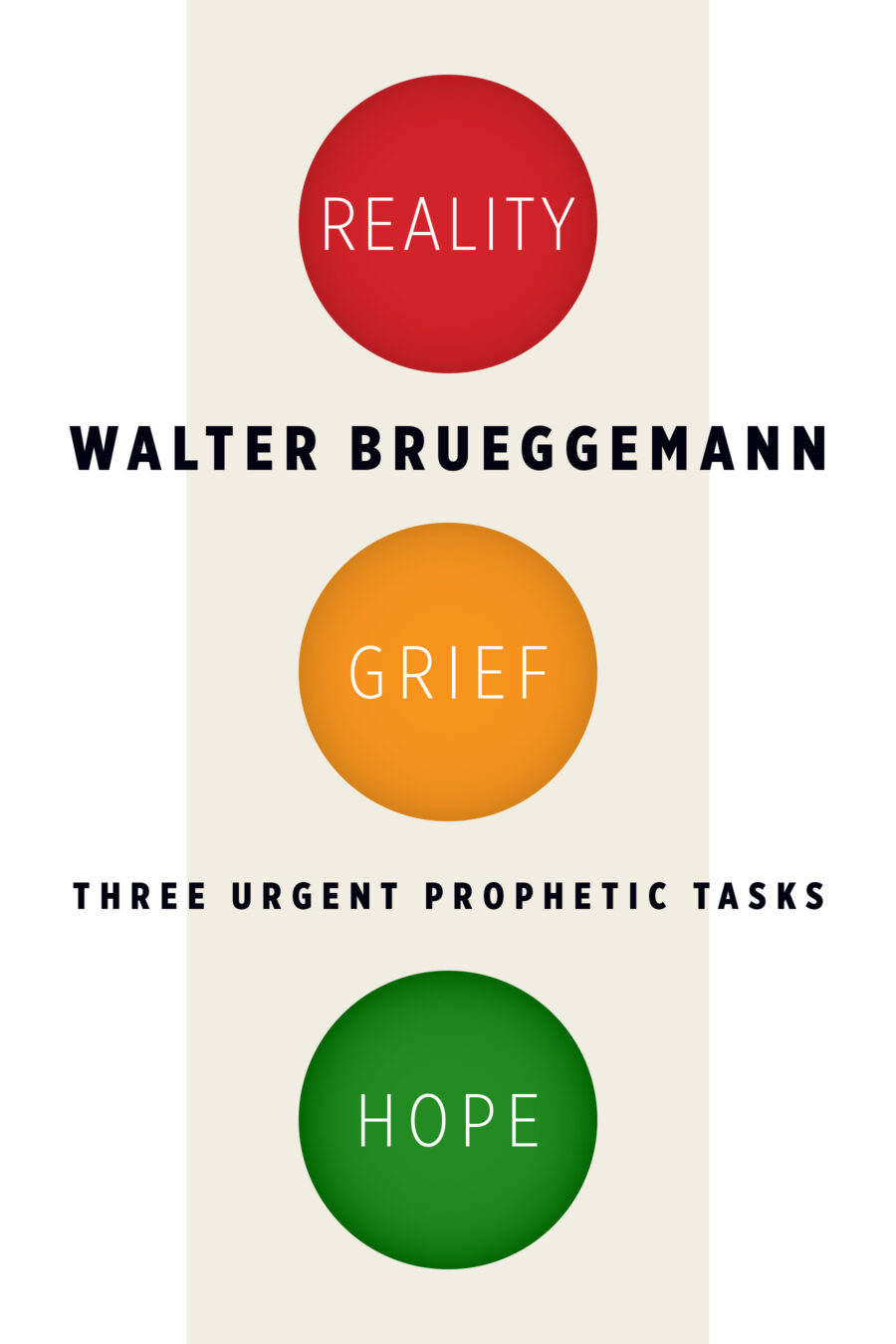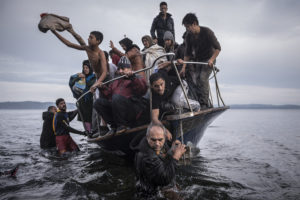In Reality, Grief, Hope: Three Urgent Prophetic Tasks, Walter Brueggemann suggests that the ancient Israelite ideological crisis caused by the destruction of Jerusalem can act as an analogy for the modern American ideological crisis caused by 9/11 and that the prophetic response of ancient Israel should act as the pattern for the modern church’s response. This prophetic task is divided into three aspects: the articulation of reality in the face of a constructed ideology, the expression of grief within a society that denies the deficiencies of its ideology, and the proclamation of hope in the midst of despair.
First, Brueggemann suggests that the late Israelite monarchy utilized an ideology of “chosenness,” twisting the traditions of covenant and temple into a politically legitimizing ideology. In response to this, the prophets spoke to the reality of YHWH’s continuing and active involvement in the world and illuminated the ways that the royal ideology undermined the covenantal standards of justice and care for the widow, orphan, and stranger (cf. Deut. 10:17-18). Brueggemann then suggests that like ancient Israel, modern American society is embedded in an ideology of exceptionalism characterized by “a sense of entitlement and privilege and a distorted view of reality” (p. 24). Like the Israelite prophets, Brueggemann suggests the response of the church must be “to bear witness to the irreducible reality of God and the irreducibility of the neighbor” (p. 37).
The next chapter demonstrates how the Israelite ideology was accompanied by a stringent denial of the coming consequences of its covenantal abandonment, exemplified by the figure of Hananiah in Jeremiah 28. In response to this, the prophets articulated grief for the coming calamity, illustrating – often graphically – the reality that the royal ideology sought to deny. Brueggemann suggests that a similar culture of denial pervades U.S. exceptionalism and that the response of the church to this denial should be “to encourage, permit, and engage the practice of public grief over a world that is gone” (p. 82).
Thirdly, Brueggemann suggests that once the cataclysm of exile and destruction occurred, the royal ideology fell into despair, thinking that God had either disregarded or nullified the previous covenantal promises. However, the Israelite prophets proclaimed hope that God would act in a new and fresh way. Brueggemann similarly notes examples of despair in modern U.S. culture, including a pervasive sense of anxiety and nostalgia. Against this backdrop, the task of the church is “to articulate hope, the prospect of fresh historical possibility” (p. 119).
Brueggemann concludes the book describing two contradictory metanarratives vying for control: “the totalizing narrative of the empire, and the particularizing narrative of the neighborhood” (p. 129). The narrative of the empire, exemplified by Pharaoh and Caesar, is continually undermined in the biblical account, particularly in the Exodus and Jesus’ ministry. Brueggemann further suggests the modern church should seek to expose the deficiencies of the imperial narrative and embrace the narrative of the neighborhood, characterized by generosity, hospitality, and forgiveness.
Reality, Grief, Hope is a difficult book to review. When faced with such a provocative and controversial thesis, it is easy to retreat into a defensive position. It would be possible to list disagreements about Brueggemann’s scriptural interpretation and still easier to suggest qualifications and nuances to his critique of contemporary American political and socio-economic reality. While there is certainly a time and a place for this discussion to be had, it is much more difficult to pause and examine the heart of the thesis and ask the difficult questions of applicability.
Brueggemann’s passion for the text of the Old Testament comes through in every section of the book as he pays careful attention to exegesis and historical context. His representation of the prophets as those who speak the truth of God’s reality into a society that has constructed its own antithetical worldview is a much needed context for staid interpretations of the ancient prophets. This representation is charged with the realization that God’s word comes in order to reveal His truth in the midst of our lives, and Brueggemann clearly contends that God’s truth has real implications for understanding socio-economic realities, both in ancient Israel as well as in the modern world.
While not everyone will agree with the ways that Brueggemann suggests the socio-political aspect should be developed, he provokes his reader to continually be attentive to the prophetic voice of God and to be open to hear its reformation of our view of reality. An attentive heart to hear God’s prophetic voice – the declaration of His reality even as it may be widely divergent from our own cultural location – is just as imperative to contemporary believers as it was to ancient Israel. Reality, Grief, Hope stands as a needed warning against complacency and arrogance in the light of God’s ultimacy.
One area that might be strengthened is further specificity concerning the perspective of the Christian prophetic task. In one passage, Brueggemann suggests that the church holds a “sub-version of reality that functions to sub-vert” the imperial perspective (p. 152). I broadly agree that biblical Christianity stands as an alternative, critiquing worldview to that of totalizing empire. Yet, in the biblical texts, the worldview presented is the primary one which empire has grossly distorted and turned upside down. Christianity is not merely offering a rebellious alternative to the reality of imperial ideology. Rather, the essence of the prophetic critique is that the imperial narrative is the sub-version of God’s reality, and it provides an invitation to return to the “right-side-up” of covenantal relationship with God and neighbor through Jesus.
The Bottom Line: Reality, Grief, Hope is an examination of contemporary American ideology in analogy with that of ancient Israel against which the prophets spoke, inciting readers to attend to God’s reality in the midst of a culture that posits a different a different view of reality.
Review by Eric Covington (ec82@st-andrews.ac.uk)
University of St. Andrews





Leave a Reply
Your email is safe with us.